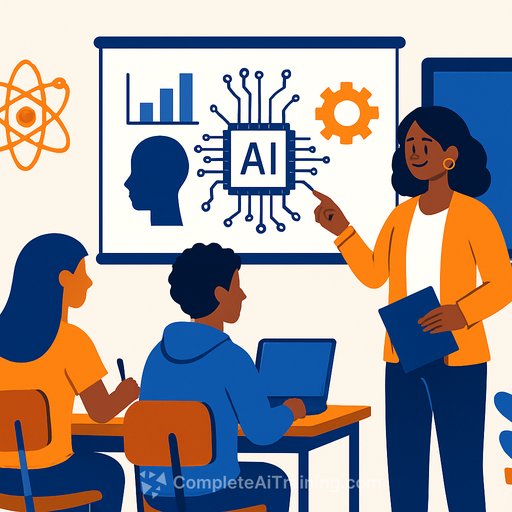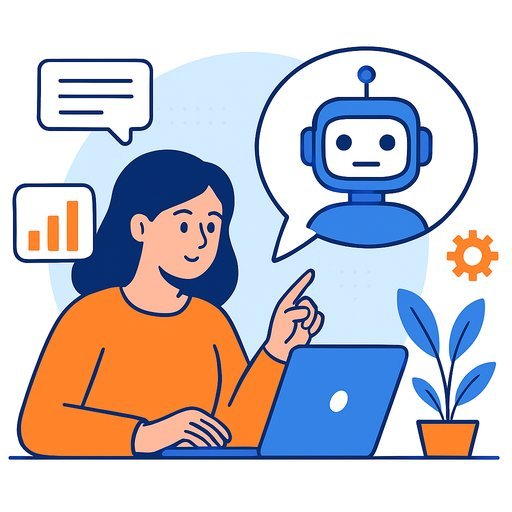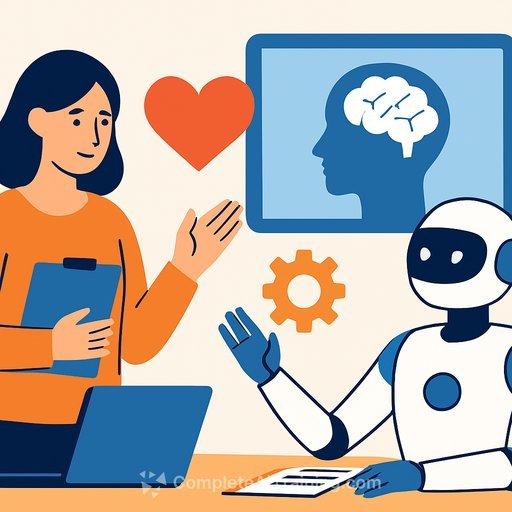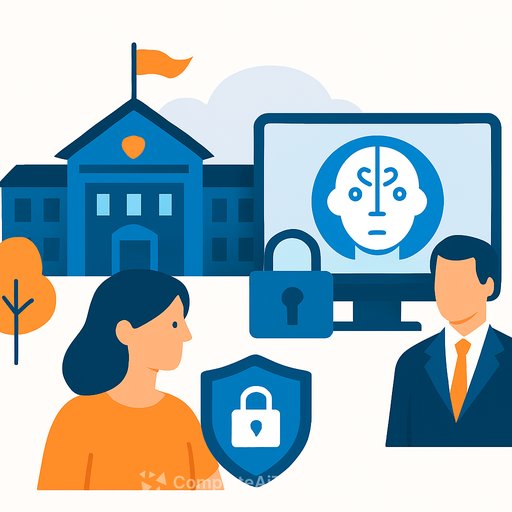New Initiative Equips STEM Educators to Integrate AI in High Schools
Artificial intelligence is changing how work and learning happen. Recognizing this shift, Northeastern University has launched a program to prepare STEM educators for effective AI integration in high school classrooms. Supported by the National Science Foundation, this initiative provides educators with the knowledge, tools, and ongoing support they need to help students succeed in an AI-driven environment.
Matt Costa, director of STEM disciplines at Revere Public Schools, emphasizes the importance of thoughtful AI education. “When students have careers, they’re going to be using it in lots of different ways. So, how can we thoughtfully build it up?”
AI in education can spark debate. Kathleen Bateman, science program director at Boston Latin School, notes that discussions often assume a pro- or anti-AI stance, leaving little room to simply explore the technology. The Northeastern program seeks to change that by giving educators space to critically engage with AI tools and collaborate on best practices.
Program Structure and Goals
The program combines foundational AI modules, an intensive week-long training, and a year of monthly follow-up sessions with continuous content support. This structure allows educators to build their skills over time while exchanging ideas with peers from various school settings.
Bateman highlights the benefit of this collaborative approach: “We’ve talked about how AI impacts learners at all levels, including students with learning differences and those for whom English is a second language. It’s given us time to think critically about our own institutions.”
Bridging Policy Gaps
Northeastern’s three-year initiative aims to create a professional learning community for STEM teachers across Massachusetts. The goal is to build a supportive network where educators can share resources and advocate for fair and responsible AI use in classrooms.
The inaugural cohort included 12 educators who completed foundational modules, participated in intensive training, and engaged in ongoing monthly sessions.
Ibrahim Zeid, a professor of mechanical and industrial engineering who led the training and helped secure NSF funding, observed a significant shift in participants’ attitudes. “They became very knowledgeable in AI and prompt engineering, as well as current AI tools,” he says. “K-12 STEM education must keep pace with industry, where companies are developing and applying generative AI rapidly.”
However, policies on AI use vary significantly across districts and schools. Claire Duggan, executive director of Northeastern’s Center for STEM Education, points out this inconsistency. “Some districts have policies supporting AI, while others leave decisions to individual schools. This patchwork creates uncertainty for educators.”
Educators Seek Clear Guidance and Balance
Many teachers and students currently explore AI tools independently, often without formal guidance. Pakamas Tongcharoensirikul, a chemistry teacher, notes, “My students know more about AI than I do.”
Concerns about plagiarism, ethical use, and appropriate tools remain common. Access is also uneven, with federal laws like the Children’s Online Privacy Protection Act limiting some tools for younger students.
Mark Casto, chemistry teacher and science department head at Amesbury High School, sees value in informed advocacy. “Workshops like this help us bring knowledge back to our districts so administrators understand that students should have access to AI when used meaningfully and appropriately.”
Training includes evaluating AI tools relevant to STEM subjects, practicing prompt techniques, and developing lesson plans aligned with state curriculum frameworks. Educators also discuss how AI can support diverse learning needs.
Bateman reflects on the balanced view the program encourages: “AI has advantages and disadvantages. Some believe it’s best for older students who can use it responsibly. It’s not about replacing teachers, but supporting them.”
Casto adds, “If used correctly, AI can make teaching more efficient by handling some tasks, freeing educators to engage more directly with students.”
Heather Giblin, a biology and marine science teacher, points out the difference between AI-informed teaching — where AI aids educators’ preparations — and AI-powered teaching, where students interact directly with AI tools.
Human Connection Remains Essential
Despite AI’s potential, educators agree that face-to-face interaction is irreplaceable. Adam Sasso, a teacher of electives like video production and robotics, says, “It’s less about content and more about personality. AI can’t replace eye-to-eye contact and the care teachers provide.”
Digital equity is another concern. Not all students have equal access to AI platforms due to cost or availability. Edward Savage, biology teacher, questions the sustainability of free AI tools.
Physics teacher Nahuel Acosta Burroso stresses the role of teachers in closing opportunity gaps: “If some students find AI useful, everyone should have the chance to use it effectively.”
Costa advises caution in delegating tasks to AI: “We can offload some work to AI to ease our jobs, but we need to ensure we’re not offloading the wrong tasks. Reviewing student work personally helps track progress and build relationships.”
Melissa Nixon, physics teacher, worries about over-reliance on AI affecting social skills. “I want students to experiment and collaborate — not just ask questions to a computer screen.”
Further Learning and Resources
Educators interested in expanding their AI skill set can explore practical courses and resources tailored for teaching professionals. For more on AI tools and training designed with educators in mind, visit Complete AI Training’s courses for education professionals.
Your membership also unlocks:





